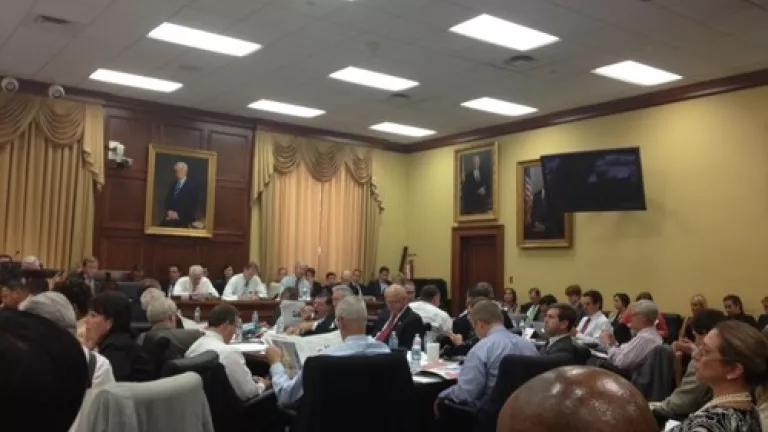
Ezra Klein reiterated his call for those of the deficit-hawkish bent to tackle infrastructure in a recent Passenger Transport newsletter. He makes the argument that those who claim we have a moral obligation not to pass the fiscal debt to future generations should see a similar threat from bequeathing them falling bridges and paltry public transportation in metro areas.
Klein has been among those arguing for years that, perhaps counterintuitively in a time of budget shortfalls, now is the time to invest in infrastructure. Why? We get the biggest bang for our bucks. As Klein points out, interest rates are low or as Klein puts it “ridiculously, insanely, comically low” since they veer into negative territory!
On top of this, construction unemployment remains higher than the overall number. Although it has dipped to its lowest level in 5 years it is still at almost 11 percent. Investment in construction also benefits a host of struggling families and workers.
With this backdrop, the Appropriations Committees for the Senate and House have now moved in starkly contrasting directions on national transportation investments. The former proposed a path that excludes one of the more interesting items in the President’s own proposed budget for the 2014 fiscal year (which starts October first): A $50 billion infrastructure fund, presumably the “bank” that the President has called for repeatedly. Such a policy would make merit-based, competitive investments and presumably leverage a lot of private sector dollars sitting on the sidelines right now.
However, if the Senate lowballed infrastructure investment, under the influence of Budget Committee Chairman Paul Ryan the House opted to walk away from the game entirely. Except the nation's budget is not a game, although if you’re reading Politico during a House Appropriations work session maybe you see it that way!
Photo courtesy of Karen Torrent, Environmental Law and Policy Center
Specifically, the House proposed slashing Amtrak funding to $950 million, in contrast with the Senate’s $1.45 billion and an almost two-thirds takedown from the President’s $2.7 billion proposal. The House proposed cutting Federal Transit Administration support by $329.7 million, in the face of booming public interest in public transportation. The House eliminated funding for the interagency Sustainable Communities Program, which is spurring innovative planning and projects nationwide. It eliminated funding for the Transportation Investments Generating Economic Recovery (TIGER) program, which first roared to live in the 2009 Recovery Act as a consistently oversubscribed and wildly popular competitive, merit-based investment program.
On a starkly different note, this week House Representative Rosa DeLauro offered her infrastructure bank bill, mirroring a laudable element of the President’s budget mentioned above, and was praised by the Blue-Green Alliance (which includes NRDC). I hope she continues the charge.
The most telling contrast between Senate and House Approps bills is on the Housing, not Transportation, side. Community Development Block Grants, a program which provides funding for areas that are truly disadvantaged – the funding is distributed based on a formula including poverty-related factors – was mercilessly chopped by the House, while the Senate actually approved $350 million more than the President requested.
This is a coldhearted and dumb move. These are stimulative grants, with measurable effects for those who need it most as shown by an analysis (pdf here) commissioned by the U.S. Conference of Mayors, National League of Cities and National Association of Counties. And they are block grants, a policy tool particularly popular among Republicans since it delivers local, not federal, control over spending. In short, this is exactly the kind of investment – along with infrastructure – everyone should agree on.
What the House Appropriations Committee did this week is shameful, and may well be – as Representative David Price of North Carolina put it aptly – “the twilight of the Appropriations process,” as appropriators abdicated their responsibility to think and work independently towards an effective and rational budget that's reconcilable with the Senate's and the President's versions.
Consequently, the nation's budget remains a mess.
